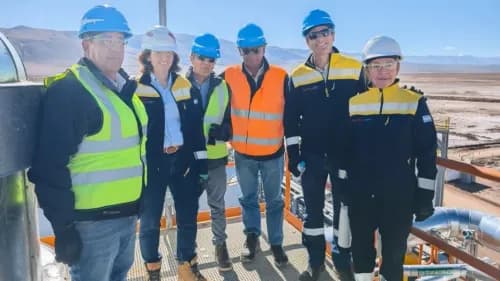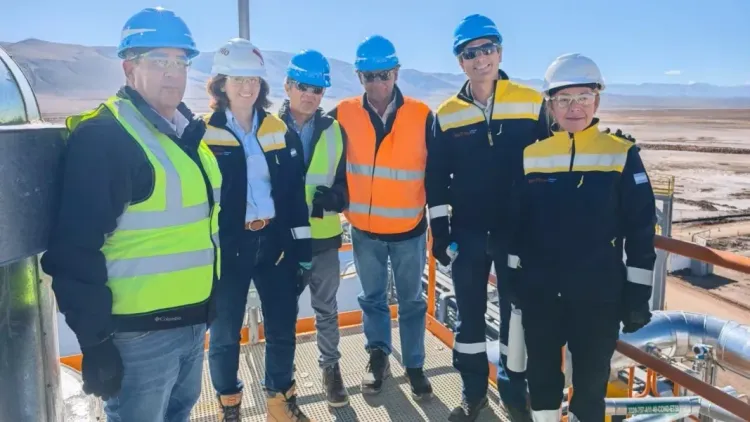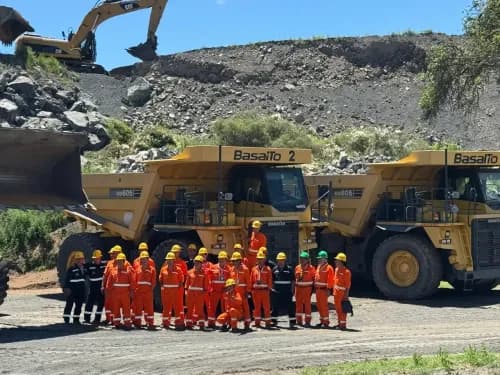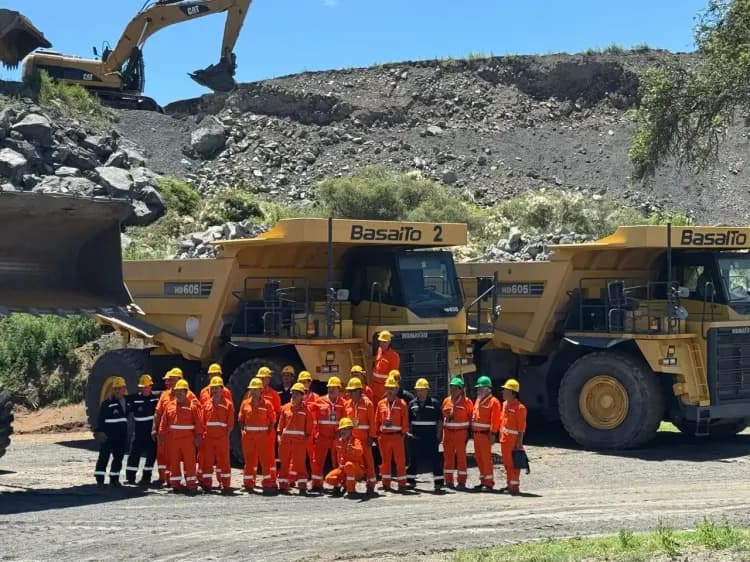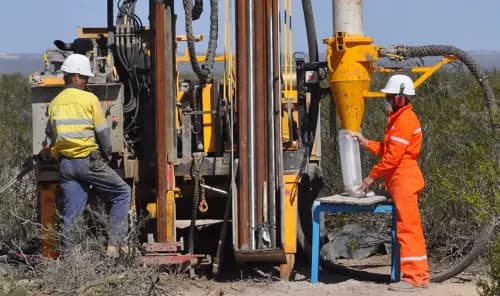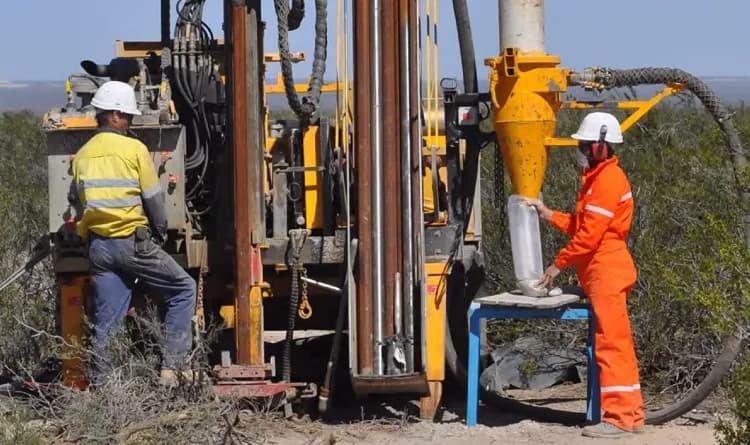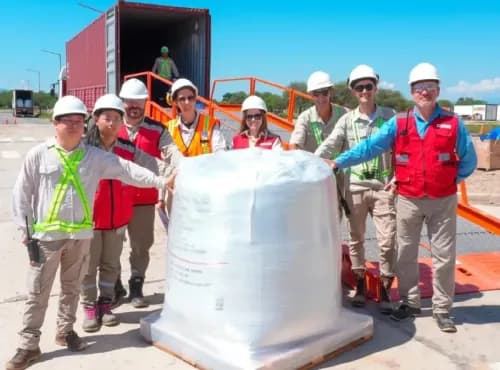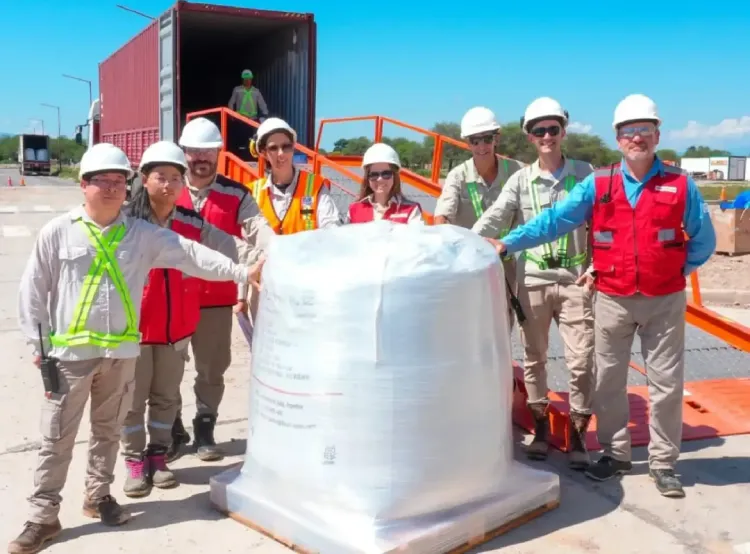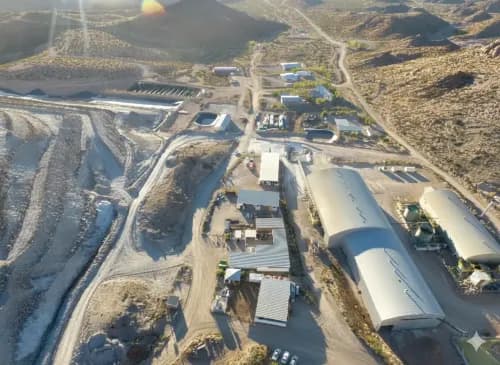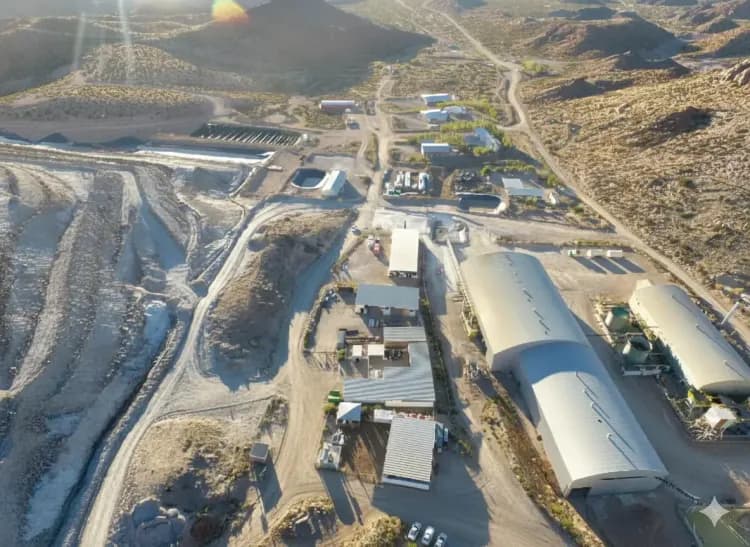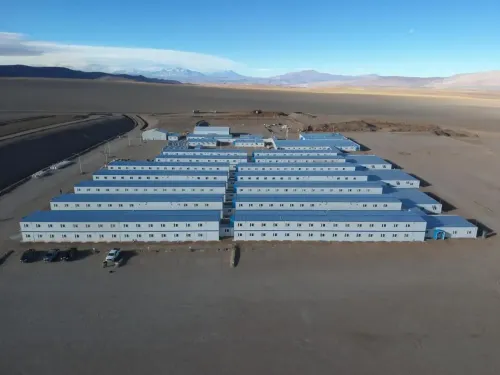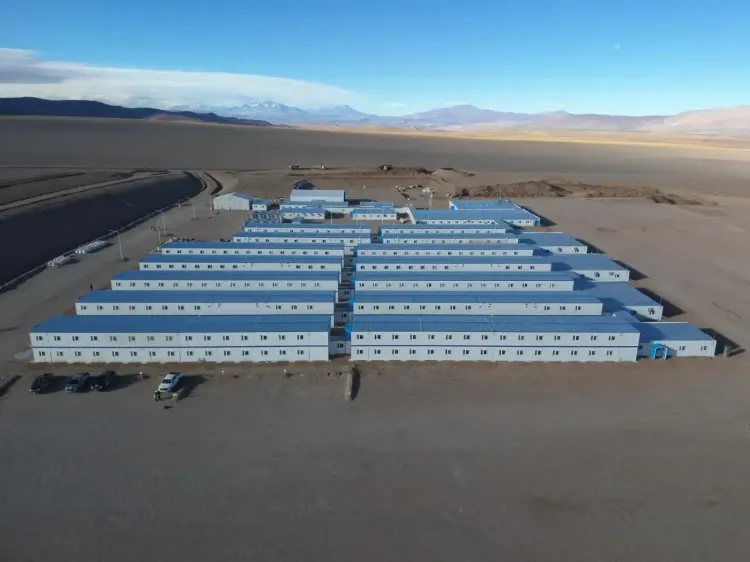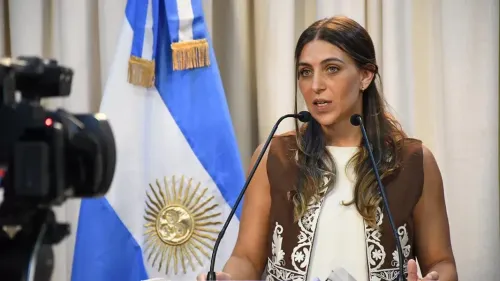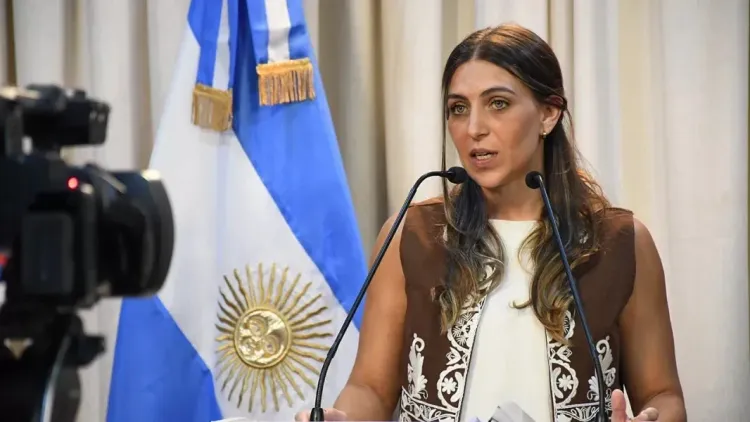An important delegation of national and provincial officials, along with private sector representatives from Argentina, participated in the London Metal Exchange Week.
By Panorama Minero
The LME (London Metal Exchange) Week is one of the key events on the global mining calendar. In London, over several days, a series of roadshows are held between officials from various countries and key players in the mining industry. London is one of the world’s leading mining hubs, with a highly attractive capital market for the sector, and is home to the main trading platform for minerals and metals: the London Metal Exchange (LME), an organization with nearly 150 years of history. The city, located along the Thames, also hosts the London Stock Exchange (LSE), where some of the world’s largest mining companies by market capitalization are listed, including Rio Tinto, Anglo American, BHP, and Glencore, showcasing the prominent presence of mining in this market.
The so-called "Argentina Day," held on October 1st, was organized jointly by the Argentine Embassy in London and the British Embassy in Argentina. Riding the momentum of the recently enacted RIGI (Incentive Regime for Large Investments), the Argentine delegation included a wide representation from both the private and public sectors.
The opening remarks of Argentina Day were delivered by the Ambassadors of Argentina and the United Kingdom, Mariana Plaza and Kirsty Hayes, followed by Pablo Quirno, Argentina's Secretary of Finance, who provided an overview of the country's macroeconomic situation. Luis Lucero, head of the National Mining Secretariat, highlighted the significant presence of two critical minerals in Argentina's subsoil: lithium and copper. Lucero underscored the importance of the RIGI, stating, "The RIGI quickly garnered support from both the Executive and Legislative branches in various provinces; never before has an investment-related tool, now associated with mining, received such broad backing or generated so much interest among the general population." He also noted the recent partnership between BHP and Lundin Mining to advance the Filo del Sol project. Additionally, he emphasized the ranking of some Argentine provinces in the annual survey conducted by Canada's Fraser Institute, with San Juan and Salta outperforming some regional benchmarks.
The event was attended by five governors who are part of the Copper Table: Raúl Jalil of Catamarca, Carlos Sadir of Jujuy, Gustavo Sáenz of Salta, Marcelo Orrego of San Juan, and Alfredo Cornejo of Mendoza. The province of Río Negro was also represented by its Minister of Production, Andrea Confini. Moreover, the provinces of Catamarca, Jujuy, and Salta form the Lithium Table.
Governor Raúl Jalil of Catamarca reflected on the province’s mining development, including Bajo la Alumbrera, a copper producer that ceased operations in 2018, and the lithium operation managed by Arcadium, active since the mid-1990s. He noted that the MARA project, located near Bajo la Alumbrera and managed by Glencore, is in an advanced stage of development.
Jalil emphasized Argentina's need to stabilize its macroeconomy, where mining, along with other sectors such as energy, will play a key role. For this, he stressed the importance of sound public policies. He further highlighted that the five governors present at Argentina Day view mining as a state policy, emphasizing the Copper Table Agreement signed during the San Juan Mining Expo, organized by Panorama Minero in May in the province of San Juan.
Jujuy's Governor, Carlos Sadir, spoke about the province's serious and responsible approach to facilitating companies' operations within a framework of legal security. "In Argentina, you will find that most provinces provide legal certainty, with stable regions, no deficits, and years of responsible fiscal and economic management, offering a secure environment for investments," Sadir stated. He also highlighted the RIGI as a crucial tool for investors' decision-making. "The governors here today have worked hard for its passage," he added.
Jujuy, a predominantly mining province, boasts two lithium production centers with various projects at different stages of development, some quite advanced. Sadir also emphasized community engagement: "After years of hard work, we are seeing greater community approval for mining, whether through direct employment or via small suppliers of goods and services, clearly demonstrating community development."
In representation of San Juan, the province with the largest number of undeveloped copper projects in Argentina, Governor Marcelo Orrego highlighted the tremendous opportunity provided by the rise of electromobility and critical minerals. "San Juan can contribute significantly, with some of the largest copper projects in the world, many of which have already received their Environmental Impact Declarations," he said. Orrego also pointed out the significant provincial and national impact of the BHP-Lundin Mining partnership to develop Filo del Sol. "We are committed to continuing our steady work; San Juan has a long-standing mining tradition, and for us, mining is a state policy, beyond the government or political party in power."
Orrego emphasized the enormous opportunities for the province, underscoring the formation of the Copper Table at the San Juan Mining Expo: "This highlights the importance of working together, as it will bring more opportunities," the governor explained. "Mining is in our DNA; it's a driving force for us, offering great prospects, especially with the rise of electromobility and growing demand," he concluded.
Salta, a member of the Lithium Table along with Catamarca and Jujuy, also participated in Argentina Day. Governor Gustavo Sáenz discussed the extensive work on mining development in the province, with substantial progress in training human resources and developing local suppliers. "Today, more than ever, Argentina presents an opportunity as the world demands minerals for the energy transition. The RIGI supports investors seeking clear rules," said Sáenz, while urging investors in the province to "provide genuine jobs for our workers and local suppliers."
Regarding Social License, Sáenz emphasized that it is achieved "through joint efforts between investors, provincial and municipal governments, and communities, with collaborative workgroups informing on what is being done. Social License is also earned by protecting the environment, as we produce while conserving, and we conserve while producing. Communities must see that this is a great opportunity for them too, not just for the investors," Sáenz concluded, adding, "The opportunity is now for investors, but also for our highly trained and competitive employees and suppliers."
The province of Mendoza is advancing toward its metalliferous mining development. Governor Alfredo Cornejo stated that the province possesses significant minerals that have yet to be exploited. "We have a diversified economy, but we lack the development of the mining industry," Cornejo said. He added, "There is a huge window of opportunity as the energy matrix shifts and the demand for critical minerals increases."
Cornejo stressed that today "Argentina needs other engines beyond agriculture; we've ignited the gas engine, but we must also start the mining engine, considering the minerals we possess." Specifically, he noted that Mendoza has "amended the Mining Procedure Code to facilitate permits and simplify procedures."
He detailed that the province already has advanced copper permits, one iron project, and one potassium project with a pilot plant set to begin production in the first quarter of 2025. "The most ambitious one," he added, "is the Environmental Impact Declaration (DIA) for the Western Malargüe Mining District, covering 18,000 square kilometers with 34 copper projects. This DIA was submitted to a public hearing and received nearly unanimous approval."
Finally, representing the government of Río Negro, Energy Secretary Andrea Confini highlighted the province's mining diversity: "We have 53 projects at different stages of development, including gold, some in feasibility stages, and uranium projects as well." She expressed great optimism following the approval of the public hearing for the Calcatreu project by the communities of Ingeniero Jacobacci. "This is great news as we have been working for five years to secure social license, and it is clear that we can achieve it in our province." Confini noted that education is a key pillar: "In primary school, students learn about the province, emphasizing the energy transition and the importance of minerals," with efforts made to integrate mining into the school curriculum.
In conclusion, it was a very positive LME Week for the Argentine delegation. Besides Argentina Day, meetings between companies and officials were held to explore mining opportunities.
With the recent enactment of RIGI and Argentina’s strength in critical minerals for the energy transition, particularly copper and lithium, which are being demanded in exponential quantities, the event concluded, in preliminary terms, with a positive outcome for Argentina.





